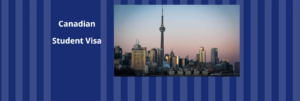
Family reunification is the second-largest category of immigration for newcomers to Canada, following economic immigration.
Table of Contents
In 2024, the IRCC anticipates welcoming 114,000 new permanent residents through these pathways, which include spousal sponsorship, sponsorship of children and dependents, as well as parents and grandparents.
Sponsoring a spouse enables foreign nationals to join their Canadian citizen or permanent resident partners in Canada, ultimately allowing them to become permanent residents as well.
There are two pathways for spousal sponsorship: Inland sponsorship (applying from within Canada) and Outland sponsorship (applying from outside Canada).
In both cases, the sponsor must meet certain eligibility criteria, including:
- Being at least 18 years old
- Being a Canadian citizen or permanent resident residing in Canada
- Not being in prison, bankrupt, under a removal order, or facing serious criminal charges
- Not having been sponsored to Canada as a spouse within the last five years
Sponsors must also be ready to sign a financial undertaking, which legally obligates them to support their foreign national spouse or common-law partner and meet their basic needs for up to three years, even if the relationship ends.
Immigration, Refugees and Citizenship Canada (IRCC) defines basic needs as:
- Food, clothing, shelter, and other necessities for everyday living
- Dental and eye care, along with other health needs not covered by public health services
Eligibility for the pathways is also determined by the nature of the relationship:
- Spouse: Legally married
- Common-law partner: A relationship in which partners have lived together for at least 12 consecutive months in a marriage-like arrangement
- Conjugal partner: A committed relationship lasting more than 12 months, where obstacles (such as immigration barriers or cultural/religious beliefs) have prevented cohabitation
The IRCC has a service standard of 12 months for processing spousal sponsorship applications, applicable to both Inland and Outland pathways.

Inland Sponsorship
For those choosing the Inland sponsorship route, the foreign national must have valid temporary resident status in Canada, such as being a visitor or holding a work or study permit. If they are already in Canada, the sponsored partner may be eligible to apply for a Spousal Open Work Permit (SOWP) simultaneously with their permanent residence application.
Spouses and common-law partners must live together when the application is submitted. However, those in conjugal relationships are not eligible for Inland sponsorship. The IRCC advises that individuals applying for permanent residence under Inland sponsorship should avoid leaving Canada, as they may face reentry issues, particularly if they require a visitor visa.
Outland Sponsorship
Outland sponsorship is suitable for couples who cannot live together in Canada. Spouses, common-law partners, and conjugal partners can apply as long as they meet all other sponsorship conditions.
Typically, the sponsor resides in Canada, while the foreign national may travel between Canada and their home country while awaiting a decision on their application. Outland sponsorship may also be the preferred option for sponsored partners currently in Canada who anticipate needing to leave and return during the processing of their application.
FOR MORE INFORMATION CLICK ON : https://esseindiacomplaints.com/





